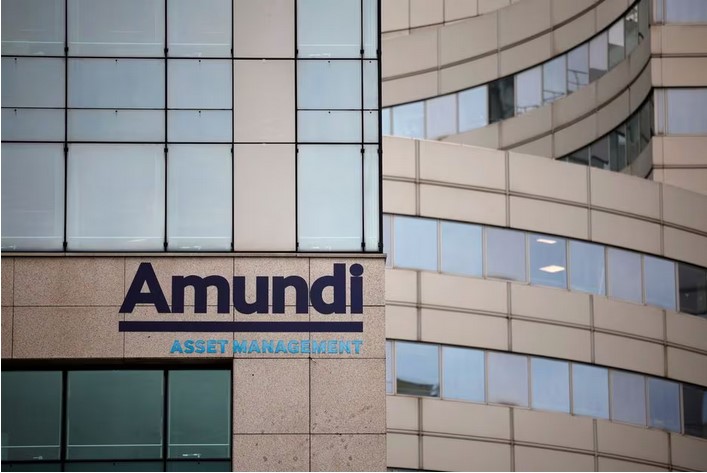The global economic landscape is set for a shift, and Amundi investment institute predicts a boon for emerging markets (EM) in the coming year. According to Alessia Berardi, the head of emerging macro and strategy at the Amundi Investment Institute, the anticipated rate cuts by the U.S. Federal Reserve in mid-2024 will create a positive environment for EM.
Fed Easing: A Timely Boost for Emerging Markets
Amundi’s insight into the Federal Reserve’s easing strategy suggests that the timing of rate cuts is crucial. Berardi highlights that these rate cuts are expected to be particularly beneficial for emerging markets, presenting them with improved economic prospects compared to developed markets.
Market Preferences: Indian and Japanese Equity Markets in Focus
In this scenario, Berardi points out that Indian and Japanese equity markets are “relatively” favored. The United States is projected to experience a significant slowdown, shifting the growth premium in favor of emerging markets. Berardi goes further, predicting a recessionary outlook for the U.S. in the first half of 2024.
Performance Analysis: A Year-to-Date Perspective
The MSCI emerging markets index has already shown a 2.8% rise year-to-date, contrasting with the 17% rise in the S&P 500. Despite China’s economic slowdown, the Asian markets, according to Berardi, have demonstrated resilience, offering interesting opportunities for investors.
Opportunities in Asia: A Less Restrictive Policy Mix
Berardi emphasizes that Asia stands out due to its less restrictive policy mix compared to other regions. This policy flexibility adds to the allure of the region for investors seeking diverse opportunities in the emerging markets.
Fund Allocation Strategy: Quality, Growth, and Future Considerations
Regarding fund allocation, Berardi adopts a cautious approach, Amundi gradually adding equities with a preference for quality and growth in the initial phase. The strategy evolves, with future plans to incorporate beta or valuation styles.
Fixed Income Preferences: Navigating Through Bond Markets
Within fixed income, Berardi expresses a preference for hard-currency bonds. However, she indicates a strategic approach, suggesting the addition of duration to fixed income later, reflecting a nuanced investment strategy.
Performance of Emerging Markets Bond ETF: Unraveling the Numbers
Analyzing the iShares JPM Emerging Markets Bond ETF reveals a 1.6% slip this year. The backdrop of stubborn inflation and aggressive rate hikes has contributed to this performance, following a 2022 plunge of 22%, one of the worst years on record for emerging markets.
Outlook on Emerging Currencies: Undervalued Opportunities
Berardi identifies emerging currencies as “strongly undervalued.” Currencies with a “high carry trade,” such as the Indian rupee and the Indonesian rupiah, are positioned as attractive bets for 2024.
Conclusion
Amundi’s perspective offers a compelling outlook for emerging markets, presenting a narrative where the Federal Reserve’s easing measures act as a catalyst. The shifting dynamics between developed and emerging markets, coupled with strategic investment approaches, make for an intriguing landscape in the coming year.
FAQs
- How will the anticipated rate cuts by the Federal Reserve impact emerging markets?
- The rate cuts are expecte to create a positive environment for emerging markets
enhancing their economic prospects compared to developed markets.
- The rate cuts are expecte to create a positive environment for emerging markets
- Which equity markets are relatively favore according to Alessia Berardi?
- Indian and Japanese equity markets are highlighte as “relatively” favored in the scenario of the U.S. slowing down significantly.
- What is the year-to-date performance of the MSCI emerging markets index?
- The index has shown a 2.8% rise, in contrast to the 17% rise in the S&P 500
indicating a positive trend in emerging markets.
- The index has shown a 2.8% rise, in contrast to the 17% rise in the S&P 500
- Why does Alessia Berardi emphasize Asia in terms of investment opportunities?
- Asia is deeme attractive due to its resilient markets and a less restrictive policy mix compared to other regions
offering interesting investment opportunities.
- Asia is deeme attractive due to its resilient markets and a less restrictive policy mix compared to other regions
- What is Amundi’s fund allocation strategy, and how does it evolve over time?
- Amundi adopts a cautious approach, initially focusing on quality and growth in fund
allocation and gradually transitioning to incorporate beta or valuation styles in the future.
- Amundi adopts a cautious approach, initially focusing on quality and growth in fund

